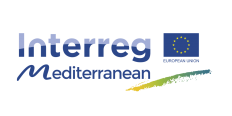SHAPETOURISM - New shape and drives for the tourism sector: supporting decision, integrating plans and ensuring sustainability
Principal Investigator at ZRC SAZU
Aleš Smrekar, PhD-
Original Title
New shape and drives for the tourism sector: supporting decision, integrating plans and ensuring sustainability
-
Acronym
SHAPETOURISM
Project Team
Aleš Smrekar, PhD, Mateja Breg Valjavec, PhD, Rok Ciglič, PhD, Mateja Ferk, PhD, Drago Kladnik, PhD, Katarina Polajnar Horvat, PhD, Petra Rus, PhD, Jernej Tiran, PhD, Jure Tičar, PhD, Primož Gašperič, PhD-
Duration
1 November 2016–28 February 2018 -
Lead Partner
-
Project Leader
Barbara Iacampo
-
Financial Source
Služba vlade RS za razvoj in evropsko kohezijsko politiko

Interreg Mediterranean

Javna agencija za raziskovalno dejavnost RS

Partners
Ca' Foscari Univerza v Benetkah – Oddelek za ekonomijo (Ca' Foscari University …, University of Algarve, Portugal, Italian Association of the Council of European Municipalities and Regions - Ven…, Research Centre of the Slovenian Academy of Sciences and Arts, Slovenia, University of Split, Faculty of Economics, Croatia, Cyprus Center for European and International Affairs, Cyprus, University of Malaga – Department of Economics and Management, Spain
Shapetourism improves the tourism knowledge framework, providing analysis and operational tools to pinpoint an integrated methodology to shape and drive tourism sustainable growth, particularly for cultural destinations. It supports policymakers and private operators to achieve: attractiveness, growth and sustainability, taking into account the major challenges of global competition. Starting from the capitalization of scientific studies and from tourism established patterns, the project gears towards the balance between divergent public and private interests with the final scope to drive tourism development to an holistic, highly operational and sustainable approach.
Project provides: 1) Smart Tourism Data System, to arrange recommendations and scenarios, to improve attractiveness and competitiveness of territorial assets; 2) Planning Solutions to tackle territorial assets sustainable exploitation, while balancing conflicts between landscape conservation and tourism growth pressures and tailoring responses to destinations life cycle; 3) ShapeTourism Protocol based on a Participative decisional support system is able to create effective synergies and cooperation mechanisms for a responsible coastal and maritime integrated management.
Actually, SHAPETOURISM enables to fill up some structural gaps providing: (1) open-data/BigData processing; (2) new sample survey; (3) business ecosystem analysis; decision support system leveraging on opportunities/facing risks and (5) providing tools to develop integrated coastal zone management and maritime spatial planning.
